Your cart is currently empty!
Month: July 2024
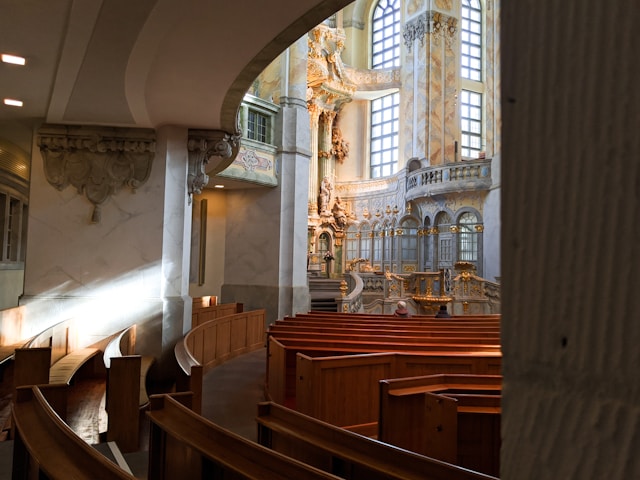
Unlocking the Secrets of the Holy Trinity: A Comprehensive Guide
Introduction
The concept of the Holy Trinity is fundamental to Christianity, forming the very core of the faith. It embodies the belief in one God existing as three distinct persons: the Father, the Son (Jesus Christ), and the Holy Spirit. Understanding this intricate doctrine is crucial for gaining a deeper comprehension of the Christian God and the nature of divinity.
Three-in-One: Parsing the Trinity
The Trinity represents a unique paradox in Christianity—a unity in diversity. It asserts that while God exists as a single entity, He simultaneously manifests in three distinct persons, each possessing distinct roles and attributes:
- The Father: The Creator and sovereign Lord of all.
- The Son (Jesus Christ): The incarnate God, born of the Father, who came to redeem humankind from sin.
- The Holy Spirit: The divine counselor and comforter, sent by the Father and the Son to dwell in believers.
Scriptural Basis: Evidence from the Bible
The doctrine of the Trinity finds its foundation in the Holy Scriptures. Numerous biblical passages explicitly and implicitly support this concept:
- Matthew 28:19: “Go therefore and make disciples of all nations, baptizing them in the name of the Father and of the Son and of the Holy Spirit.”
- 2 Corinthians 13:14: “The grace of the Lord Jesus Christ and the love of God and the fellowship of the Holy Spirit be with you all.”
- 1 John 5:7: “For there are three that bear witness in heaven: the Father, the Word, and the Holy Spirit; and these three are one.”
Historical Development: Exploring the Evolution
The concept of the Trinity emerged gradually throughout the history of Christianity. Early Church Fathers, such as Tertullian and Origen, played a significant role in formulating the doctrine. However, it was at the Council of Nicaea in 325 AD that the Trinity was formally defined, establishing Jesus Christ as “true God from true God” and condemning Arianism, which denied the divinity of Christ.
Implications and Significance: The Impact of the Trinity
The Trinity has profound implications for Christian theology and practice:
- Biblical Revelation: It provides a framework for understanding the nature of God as revealed in Scripture.
- Worship and Prayer: Christians worship and pray to the one God in three persons, acknowledging their distinct roles and attributes.
- Christian Living: The Trinity serves as a model for relationships within the Christian community, emphasizing love, unity, and diversity.
- Mission and Evangelism: The Great Commission (Matthew 28:19) entails baptizing in the name of the Trinity, reflecting the importance of the doctrine in Christian outreach.
Table: Attributes of the Trinity
Person Description Specific Attributes Father Creator and sovereign Lord – Eternality, omnipotence, omniscience Son (Jesus Christ) Incarnate God, redeemer – Divinity, humanity, resurrection Holy Spirit Divine counselor and comforter – Indwelling of believers, empowering Objections and Responses: Addressing Common Challenges
The doctrine of the Trinity has faced objections throughout history. Here are some common objections and responses:
Objection Response Logical Contradiction: The idea of one God in three persons is illogical and confusing. Response: The Trinity is not a logical contradiction but a mystery that transcends human reason. It requires faith and acceptance, not logical comprehension. Biblical Interpretation: Some passages in the Bible seem to imply a hierarchy within the Trinity, with the Father superior to the Son and the Holy Spirit. Response: While passages may describe a distinction in roles, they do not imply inferiority or subordination. The Trinity emphasizes the equality and unity of the three persons. Historical Origin: Critics argue that the Trinity is a late development in Christian thought, not found in the earliest Christian writings. Response: The doctrine of the Trinity evolved gradually over time, but its roots can be traced back to the New Testament and the early Church Fathers. Conclusion
The Holy Trinity is a foundational doctrine of Christianity, embodying the belief in one God existing as three distinct persons. It is supported by biblical evidence, historical development, and theological implications. Understanding the Trinity provides a deeper comprehension of the Christian God, fosters meaningful worship and prayer, and shapes the Christian community. While it remains a mystery that transcends human logic, the Trinity remains an essential aspect of Christian faith and a source of comfort, guidance, and inspiration for believers.
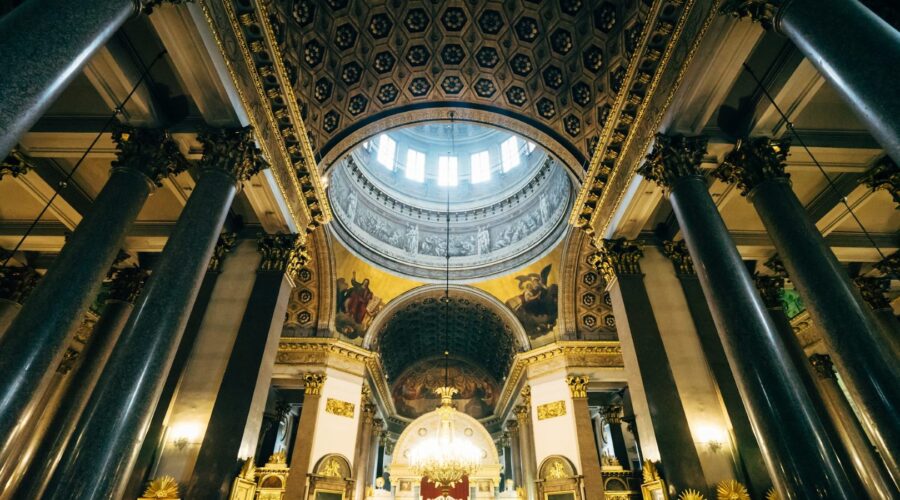
Discover the Historic Charm and Modern Spirit of Westminster Presbyterian Church
Nestled amidst the bustling streets of Minneapolis, Minnesota, Westminster Presbyterian Church stands as a vibrant testament to faith, history, and community. With its stunning architecture, rich heritage, and forward-thinking initiatives, this church has been a beacon of spirituality and social consciousness for over a century.
A Timeless Architectural Masterpiece
Westminster Presbyterian Church was designed by renowned architect Cass Gilbert, who also designed the Woolworth Building in New York City. Constructed in 1904, the church’s Romanesque Revival style is characterized by its elegant arches, stately columns, and intricate carvings.
The sanctuary is a breathtaking spectacle, with its soaring vaulted ceiling adorned with vibrant murals depicting biblical scenes. The stained glass windows, crafted by Tiffany Studios, cast a kaleidoscope of colors upon the interior, creando a sacred and awe-inspiring atmosphere.
A Legacy of Faith and Community
Westminster Presbyterian Church has played a pivotal role in the life of Minneapolis since its inception. It has been a gathering place for worship, fellowship, and service for generations of congregants.
- Early History: Founded in 1857 as a small congregation, Westminster grew rapidly and became one of the largest Presbyterian churches in the city.
- Social Justice Advocacy: Throughout its history, Westminster has been at the forefront of social justice movements, advocating for civil rights, racial equality, and the rights of the poor.
- Community Outreach: The church operates a wide range of outreach programs, including a food shelf, a clothing closet, and a homeless shelter.
A Vibrant and Inclusive Congregation
Westminster Presbyterian Church is a welcoming and inclusive community that embraces people from all backgrounds and walks of life. It offers a variety of worship services to meet the needs of its diverse congregation:
- Traditional Worship: A formal service with hymns, Scripture readings, and a sermon.
- Contemporary Worship: A more casual service with contemporary music, a multimedia presentation, and a relevant message.
- Youth Worship: A service tailored specifically for youth, with age-appropriate music and messages.
The church also offers a multitude of opportunities for spiritual growth, fellowship, and service, including:
- Adult Education Classes: Bible studies, theological discussions, and social justice seminars.
- Small Groups: Intimate gatherings for prayer, fellowship, and mutual support.
- Choirs and Music Ensembles: A variety of choirs for all ages and skill levels.
A Catalyst for Social Change
Westminster Presbyterian Church has a long history of social activism. It has been involved in numerous initiatives, including:
- Affordable Housing: The church has partnered with organizations to provide affordable housing for low-income families.
- Racial Justice: Westminster is a active member of the Minneapolis Racial Justice Coalition.
- Environmental Stewardship: The church has implemented eco-friendly practices and advocates for environmental protection.
A Welcoming Place for All
Westminster Presbyterian Church is a place where everyone is welcomed and accepted. It offers a variety of resources and programs for individuals of all ages and backgrounds:
Program Description Sunday School: Classes for children and youth, from preschool to high school. Youth Ministries: Programs and events for youth, including confirmation classes, mission trips, and social gatherings. Adult Education: Bible studies, theological discussions, and social justice seminars. Outreach Programs: Food shelf, clothing closet, homeless shelter, and community meals. Visiting Westminster Presbyterian Church
Westminster Presbyterian Church is located at 1200 Nicollet Mall in downtown Minneapolis. Visitors are welcome to attend any of the services or events.Visit the church’s website for more information and a complete calendar of events.
Conclusion
Westminster Presbyterian Church is more than just a building; it is a vibrant community of faith, history, and service. With its stunning architecture, rich heritage, and forward-thinking initiatives, this church continues to inspire and engage its congregants and the broader community. Whether you are seeking spiritual growth, fellowship, or a catalyst for social change, Westminster Presbyterian Church welcomes you with open arms.
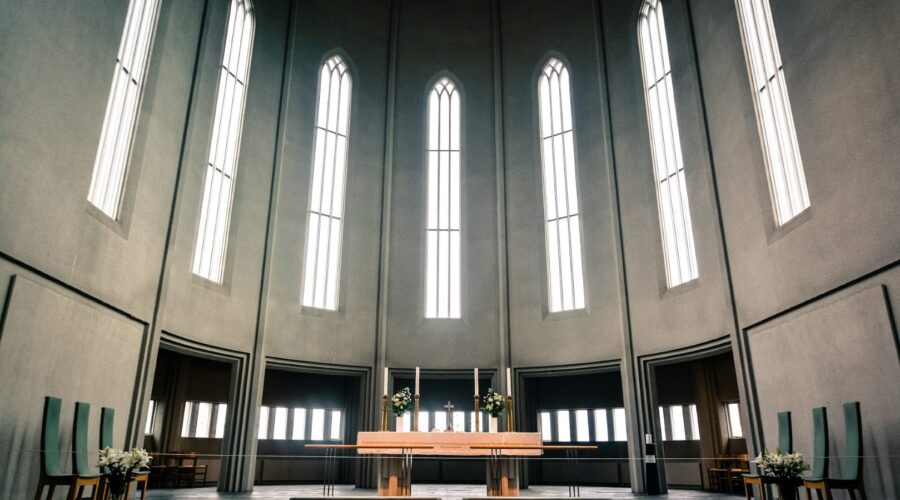
Discover the Community of Christ: A Journey of Faith and Inclusivity
Introduction
The Community of Christ, formerly known as the Reorganized Church of Jesus Christ of Latter Day Saints, is a Christian denomination with a unique history and a distinctive approach to faith and spirituality. Founded in the mid-19th century, the Community of Christ has grown into a global community with over 250,000 members in more than 60 countries.
This comprehensive guide explores the history, beliefs, practices, and values of the Community of Christ, providing insights into its transformative journey and ongoing commitment to inclusive faith and social justice.
History and Origins
The Latter Day Saint Movement
The Community of Christ traces its roots to the Latter Day Saint movement founded by Joseph Smith in the early 19th century. Smith claimed to have received divine revelations leading to the establishment of the Church of Christ in 1830. Over time, the movement divided into several factions, including the Reorganized Church of Jesus Christ of Latter Day Saints (RLDS), which later evolved into the Community of Christ.
Formation of the RLDS
In 1851, a group of Latter Day Saints dissatisfied with the leadership of Brigham Young led by Joseph Smith III, the eldest son of Joseph Smith Jr., founded the RLDS. The RLDS rejected the polygamous practices adopted by Young’s faction and emphasized a more liberal and progressive interpretation of Smith’s teachings.
Beliefs and Practices
- God and Jesus Christ: The Community of Christ believes in the existence of God the Father, Jesus Christ as the Son of God, and the Holy Spirit as the third person of the Trinity.
- The Bible: While considering the Bible as a sacred text, the Community of Christ also recognizes the importance of ongoing revelation and the authority of the living prophet.
- Sacraments: The Community of Christ practices two sacraments: baptism and the sacrament of the Lord’s Supper.
- Leadership: The church is led by a prophet, who is both the spiritual and administrative head. The prophet is assisted by a Council of Twelve Apostles and a First Presidency.
- Mission: The Community of Christ is committed to sharing the gospel of Jesus Christ and fostering a just and compassionate society.
Key Distinctions from Latter-day Saint Denominations
While sharing some historical roots, the Community of Christ differs significantly from other Latter-day Saint denominations, such as the Church of Jesus Christ of Latter-day Saints (LDS Church), in several key aspects:
- Polygamy: The Community of Christ has always rejected the practice of polygamy.
- Revelation: The Community of Christ believes that ongoing revelation continues to guide the church, while the LDS Church considers the canon of scripture as closed.
- Leadership: The Community of Christ has a decentralized leadership structure with an emphasis on shared responsibility, while the LDS Church has a centralized authority structure.
Inclusivity and Social Justice
The Community of Christ is known for its commitment to inclusivity and social justice. The church:
- Ordains women to the priesthood: The Community of Christ has ordained women to the priesthood since 1984.
- Supports LGBTQ+ rights: The church has been a vocal advocate for the rights of LGBTQ+ individuals and has approved same-sex marriage since 2015.
- Engages in social service: The Community of Christ operates numerous social service programs around the world, including food banks, homeless shelters, and refugee support.
Governance and Structure
The Community of Christ is governed by the following bodies:
- World Conference: The governing body of the church, which meets every two years to set policy and elect leadership.
- Prophet and First Presidency: The prophet and two counselors who serve as the highest administrative authorities.
- Council of Twelve Apostles: A council of twelve men who advise the prophet and serve as leaders throughout the church.
- Regional and local organizations: The church is organized into regions, stakes, and congregations around the world.
Conclusion
The Community of Christ is a dynamic and growing Christian denomination with a rich history, a distinctive set of beliefs and practices, and a strong commitment to inclusivity and social justice. Its journey of faith has been marked by resilience, adaptability, and a unwavering dedication to the gospel of Jesus Christ.
Whether you are exploring your faith, seeking a spiritual community, or simply curious about religious diversity, the Community of Christ offers a welcoming and transformative experience.
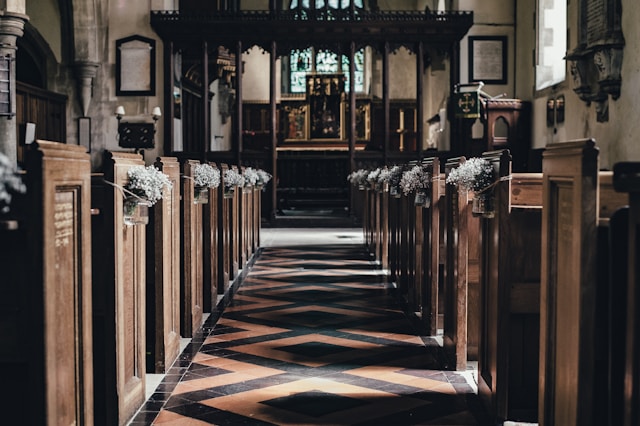
Unveil the Essence of Alliance Church: A Comprehensive Guide
Introduction
Alliance Church is a dynamic and multifaceted Christian denomination that has touched the lives of millions globally. With a rich history, distinctive beliefs, and a mission-driven approach, this church offers a profound spiritual experience.
History and Formation
- The Alliance Church emerged from the Wesleyan-Holiness movement in the late 19th century.
- Founded by Albert Benjamin Simpson in 1887, the church aimed to promote holiness, evangelism, and missionary work.
- The Alliance Church quickly spread throughout the United States and beyond, establishing a global presence.
Core Beliefs
- Holy Scriptures: The Alliance Church affirms the Bible as the sole infallible and supreme authority for faith and practice.
- God: Belief in God as a triune Being – Father, Son, and Holy Spirit – with distinct roles and an eternal existence.
- Salvation: Salvation is obtained through faith in Jesus Christ, accepting his sacrifice on the cross as payment for sins.
- Sanctification: Christians are called to live a holy life, empowered by the Holy Spirit, seeking to conform to the image of Christ.
- Evangelism: Alliance churches place a strong emphasis on sharing the Gospel of Christ both locally and globally.
- Missions: Missions are central to the Alliance Church, with an unwavering commitment to reaching the unreached with the message of salvation.
Distinctive Characteristics
Holiness
Alliance Church emphasizes the importance of holiness, both personal and corporate. This includes living a life in accordance with biblical principles, avoiding sin, and pursuing purity of heart.
Mission-Driven
Missions are a driving force within the Alliance Church. Members actively participate in evangelistic efforts, supporting missionaries around the world and actively sharing their faith within their communities.
Spirit-Filled
Alliance churches believe in the power and guidance of the Holy Spirit. They encourage spiritual growth, prayer, and an active walk with the Spirit.
Structure and Governance
Alliance churches operate under a presbyterian form of government, with a representative body known as the General Council.
- Local Churches: Each church is led by a pastor and elders, who oversee the spiritual health and direction of the congregation.
- Regional Associations: Groups of local churches form regional associations to provide support, cooperation, and oversight.
- General Council: The General Council is the governing body of the Alliance Church, representing churches from around the world.
Worship and Liturgy
Alliance Church worship services typically include hymns, contemporary music, prayers, Scripture reading, and a message or sermon.
- Corporate Worship: Worship is seen as a communal experience, where believers gather to praise God and grow in their faith.
- Personal Devotion: Alliance Church encourages personal devotion through daily Bible reading, prayer, and meditation on God’s Word.
- Children’s and youth ministries
- Adult education and Bible studies
- Counseling and support groups
- Missions and evangelism outreach
- Evangelistic Focus: The church’s strong emphasis on evangelism has led to numerous conversions and the establishment of new churches globally.
- Missionary Work: Alliance missionaries have played a vital role in spreading the Gospel and providing humanitarian aid in various parts of the world.
- Social Influence: Alliance Church members have actively engaged in social justice issues, promoting peace, compassion, and the dignity of all human beings.
Ministries and Outreach
Alliance churches offer a wide range of ministries to meet the needs of their members and community, including:
Impact and Legacy
The Alliance Church has had a significant impact on the Christian world and beyond.
Conclusion
Alliance Church is a vibrant and growing Christian denomination with a rich history, distinctive beliefs, and a mission-driven approach. Its emphasis on holiness, evangelism, and missions has made a profound impact on the world. Through its local churches, outreach programs, and global partnerships, the Alliance Church continues to spread the message of salvation and inspire believers to live a life in accordance with God’s will.

Our Lady of Guadalupe: A Journey of Faith and Hope
Introduction
The story of Our Lady of Guadalupe is a captivating tale of faith, hope, and divine intervention. It’s a cornerstone of Mexican culture and a beloved devotion for millions worldwide. This blog post delves into the rich history, symbolism, and significance of Our Lady of Guadalupe, exploring her profound impact on individuals and communities.
The Apparitions to Juan Diego
1531 Apparition
The story begins in 1531, when a humble Aztec peasant named Juan Diego Cuauhtlatoatzin was walking Tepeyac Hill, just outside Mexico City. It was here that he encountered a beautiful maiden who identified herself as the Virgin Mary. She spoke to Juan Diego in the Nahuatl language, asking him to build a church on that spot, where a fountain would spring forth. Juan Diego hesitated but eventually agreed.
1532 Apparition
The next day, Juan Diego returned to the hill with his uncle, who was ill. The Virgin Mary healed Juan Diego’s uncle, Juan Bernardino, and asked Juan Diego to return to the bishop of Mexico City with a sign of her authenticity.
The Image on the Tilma
Juan Diego collected flowers from Tepeyac Hill and wrapped them in his tilma, a traditional cloak. When he presented these to Bishop Juan de Zumárraga, the image of Our Lady of Guadalupe miraculously appeared on the tilma. The image is still revered today for its intricate beauty and spiritual significance.
Symbolism and Significance
Virgin Mary
The Virgin Mary is depicted in the Tepeyac apparition as a young, pregnant woman. She is wearing a blue mantle adorned with stars, representing her Immaculate Conception, and a red sash, symbolizing her motherhood. The crescent moon at her feet signifies her dominance over earthly powers.
Aztec Elements
The tilma image also incorporates Aztec symbols and motifs, such as the eagle knight’s headdress and the sun rays. This blending of cultures reflects the Virgin Mary’s role as a bridge between the indigenous people of Mexico and the Spanish colonists.
Fountain of Life
The fountain that miraculously sprang forth at Tepeyac is symbolic of the living water that flows from Christ and his Church, quenching the thirst of those who believe.
Historical Impact
Conversion to Christianity
The apparitions of Our Lady of Guadalupe had a profound impact on the evangelization of Mexico. The miraculous image and its message of hope and love played a key role in the conversion of millions of indigenous people to Christianity.
Declaration of Independence
Our Lady of Guadalupe became a symbol of Mexican national identity during the struggle for independence from Spain. Father Miguel Hidalgo y Costilla, a leading figure in the independence movement, carried a banner depicting the Virgin Mary of Guadalupe into battle.
Basilica and Pilgrimage
In 1976, Pope Paul VI declared the Basilica of Our Lady of Guadalupe a minor basilica. It is now one of the most visited pilgrimage sites in the world, attracting millions of pilgrims annually.
Devotion and Miracles
Our Lady of Guadalupe continues to be a beloved object of devotion for Catholics worldwide. Numerous miracles have been attributed to her intercession, including healings, conversions, and the protection of Mexico from disasters.
Conclusion
The story of Our Lady of Guadalupe is a testament to the power of faith, the beauty of diversity, and the enduring legacy of divine intervention. As we reflect on her message of hope and unity, may we find inspiration and strength to navigate our own journeys with faith, compassion, and a love for our fellow human beings.

First Holy Communion: A Comprehensive Guide for Parents
First Holy Communion is a significant milestone in the life of a young Catholic. It is the first time that they will receive the Eucharist, the Body and Blood of Christ. This is a joyous occasion for the child, their family, and the entire parish community.
Preparation for First Holy Communion
Preparation for First Holy Communion typically begins in the second grade. During this time, children will learn about the history and meaning of the Eucharist. They will also learn about the importance of faith, prayer, and service to others. In addition to attending religious education classes, children will also participate in special preparation activities, such as retreats and field trips.
The Role of Parents
Parents play a vital role in preparing their child for First Holy Communion. They can help their child by:
- Talking to them about the importance of the Eucharist
- Encouraging them to attend religious education classes
- Participating in special preparation activities
- Praying with them
- Providing them with a good example of faith
The First Holy Communion Ceremony
The First Holy Communion ceremony is a beautiful and solemn occasion. It is typically celebrated on a Sunday during Mass. The ceremony begins with a procession of the children into the church. The children are then presented to the priest, who will lead them in the prayers of the Mass. After the readings and homily, the children will receive the Eucharist for the first time. The ceremony concludes with a blessing from the priest.
What to Expect
Here is what you can expect during the First Holy Communion ceremony:
- The children will be dressed in white robes.
- The ceremony will be about an hour long.
- The children will receive the Eucharist in the form of a small piece of bread.
- The children will be given a special blessing from the priest.
After First Holy Communion
First Holy Communion is not the end of a child’s religious education. It is just the beginning. After First Holy Communion, children will continue to learn about their faith and grow in their relationship with God. They will also be encouraged to participate in the life of the parish community through service and outreach.
Tips for Parents
Here are some tips for parents of children who have received First Holy Communion:
- Continue to talk to your child about the importance of the Eucharist.
- Encourage them to attend Mass regularly.
- Help them to find ways to serve others.
- Pray with them regularly.
- Provide them with a good example of faith.
Frequently Asked Questions
Here are some of the most frequently asked questions about First Holy Communion:
What is the age requirement for First Holy Communion?
The age requirement for First Holy Communion varies from parish to parish. In most parishes, children receive First Holy Communion in the second grade. However, some parishes may allow children to receive First Holy Communion earlier or later.
What is the cost of First Holy Communion?
The cost of First Holy Communion varies depending on the parish. Some parishes may charge a fee to cover the cost of the ceremony and preparation materials. Other parishes may not charge a fee. It is important to contact your parish directly to inquire about the cost.
What should my child wear to First Holy Communion?
Children typically wear white robes to First Holy Communion. However, some parishes may have specific dress requirements. It is important to contact your parish directly to inquire about the dress code.
Can I take pictures during the First Holy Communion ceremony?
Most parishes allow parents to take pictures during the First Holy Communion ceremony. However, it is important to be respectful of the ceremony and not to disrupt the proceedings. It is also important to get permission from the priest before taking any pictures.
Conclusion
First Holy Communion is a special and important milestone in the life of a young Catholic. It is a time to celebrate their faith and grow in their relationship with God. With proper preparation and support from parents, children can have a meaningful and memorable First Holy Communion experience.

Embark on a Spiritual Journey at Pathway Church
A Comprehensive Guide to Pathway Church: Embracing Faith, Community, and Transformation
Pathway Church, a vibrant and welcoming Christian community, strives to provide a transformative spiritual experience for individuals seeking a closer connection with God. This comprehensive guide will delve into the essential aspects of Pathway Church, from its core values to its dynamic ministries and opportunities for growth.
Our Mission and Values
Pathway Church is founded on the fundamental belief that God’s love and grace are accessible to all. With a mission to “connect people to God and to each other,” the church upholds the following core values:
- Biblical Authority: The Bible serves as the sole foundation for our faith and practice.
- Authenticity: We value authenticity and transparency, encouraging members to be genuine in their walk with Christ.
- Community: We foster a strong sense of community, where members support and encourage each other.
- Discipleship: We prioritize discipleship, guiding individuals towards a deeper understanding of the Christian faith.
- Service: We believe in serving others, both within our church family and in the wider community.
Our Dynamic Ministries
Pathway Church offers a multifaceted array of ministries tailored to cater to the diverse needs of its congregation:
Adult Ministries:
- Discipleship Groups: Small groups dedicated to studying the Bible, fostering spiritual growth, and providing support.
- Life Groups: Social gatherings that foster a sense of community and provide opportunities for connection.
- Women’s Ministry: A vibrant ministry empowering women through mentorship, Bible study, and social events.
- Men’s Ministry: A dedicated space for men to connect, disciple, and equip each other.
Children and Youth Ministries:
- Nursery (Birth – 2 Years): Providing a safe and nurturing environment for infants and toddlers.
- Preschool (3-5 Years): Engaging children in age-appropriate Bible stories, songs, and activities.
- Sunday School (K-5th Grade): Equipping children with foundational Bible knowledge and Christian values.
- Junior High Ministry (6th-8th Grade): Encouraging spiritual growth and developing a strong Christian foundation.
- High School Ministry (9th-12th Grade): Providing opportunities for discipleship, service, and leadership.
Community Ministries:
- Small Acts of Kindness: A ministry dedicated to serving the community through small acts of kindness.
- Support Groups: Providing a safe and confidential space for individuals facing challenges and seeking support.
- Mission Trips: Organizing mission trips to provide practical support to communities in need.
Opportunities for Growth and Transformation
Pathway Church offers a multitude of opportunities for spiritual growth and transformation:
Worship Services:
- Contemporary Service (Sundays 9:30 AM): A high-energy service featuring live music, engaging sermons, and opportunities for connection.
- Traditional Service (Sundays 11:00 AM): A service that blends traditional hymns with inspiring sermons, providing a contemplative and worshipful atmosphere.
Bible Studies:
- Weekly Bible Studies: In-depth studies of specific books or themes of the Bible, available in various formats (in-person, online, and home groups).
- Women’s Bible Study: A women-specific study group focused on discipleship and spiritual growth.
- Men’s Bible Study: A men-specific study group designed to equip men in their faith and life journey.
Classes and Workshops:
- Financial Freedom Class: Equipping individuals with biblical principles for financial management and stewardship.
- Parenting Class: Providing guidance and support to parents in raising children according to Christian values.
- Marriage Enrichment Workshops: Strengthening marriages through practical tools and insights from a biblical perspective.
Connect with Us
We invite you to connect with Pathway Church and embark on a transformative spiritual journey. We offer a welcoming and supportive environment where you can grow in your faith, connect with others, and make a difference in your community.
Visit Us: Contact Us: 123 Main Street
Anytown, CA 12345(555) 123-4567
Join us for our weekly worship services, participate in our vibrant ministries, and discover the transformative power of faith. Pathway Church is the perfect place to connect with God, build lasting relationships, and live a life of purpose and joy.
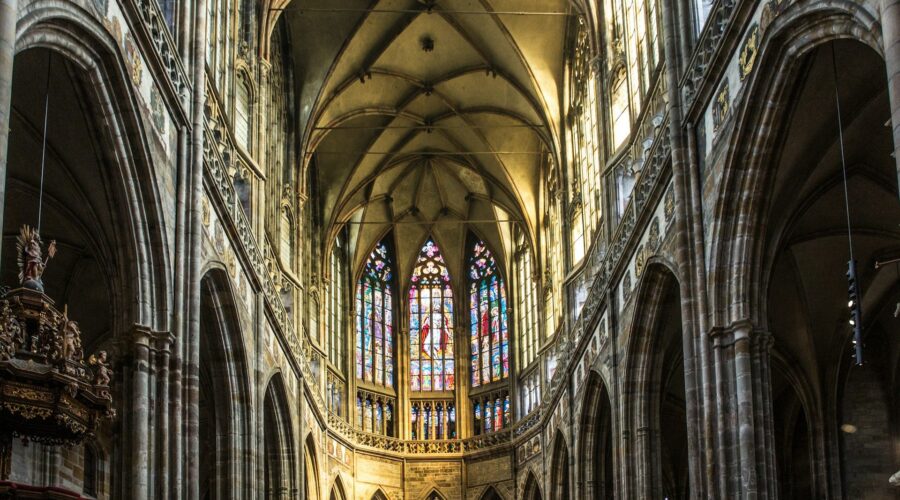
Experience Church: 5 Ways to Engage with Your Local Community of Faith
1. Attend Weekly Worship Services
Weekly worship services are the cornerstone of church life. They provide an opportunity to gather with fellow believers, hear the Word of God, and receive encouragement.
-
Find a worship service that fits your needs.
Some churches offer traditional services with hymns and organ music, while others have more contemporary services with praise bands and multimedia presentations. -
Come early and stay late.
This will give you time to connect with others and share your thoughts on the service. -
Participate in the service.
Singing, praying, and giving are all ways to engage with the worship experience.
2. Join a Small Group
Small groups are a great way to connect with other believers on a deeper level. They typically meet weekly or bi-weekly to study the Bible, pray, and share fellowship.
-
Find a small group that meets your interests.
Some groups focus on specific topics, such as marriage, parenting, or career development. -
Be open and share your thoughts.
Small groups are a safe place to ask questions, share your struggles, and receive support. -
Be consistent in your attendance.
Building relationships takes time, so it’s important to be consistent with your small group attendance.
3. Serve Others
Serving others is a great way to show your love for God and your community. There are many opportunities to serve at church, such as:
- Ushering
- Teaching Sunday school
- Volunteering for the youth program
- Working in the nursery
- Helping with special events
When you serve others, you not only bless them, but you also grow in your own faith
4. Give Financially
Giving financially is an important part of being a member of a church. Your tithes and offerings help to support the church’s ministry and outreach programs.
-
Determine a budget.
How much can you afford to give to the church each month? -
Choose a giving method.
You can give cash, check, or online. -
Consider making a recurring donation.
This will help you to stay consistent with your giving.
5. Get Involved in the Community
Churches are not just buildings; they are communities of people who care about each other and their neighbors. Get involved in the community by:
- Attending community events
- Volunteering with local organizations
- Supporting local businesses
- Praying for your community
When you get involved in the community, you show that you care about your neighbors and that you want to make a difference in the world.
Conclusion
Experiencing church is more than just attending services on Sunday. It’s about connecting with other believers, serving others, and getting involved in the community. By engaging with your local church in these ways, you can grow in your faith and make a difference in the world.
-
Find a worship service that fits your needs.
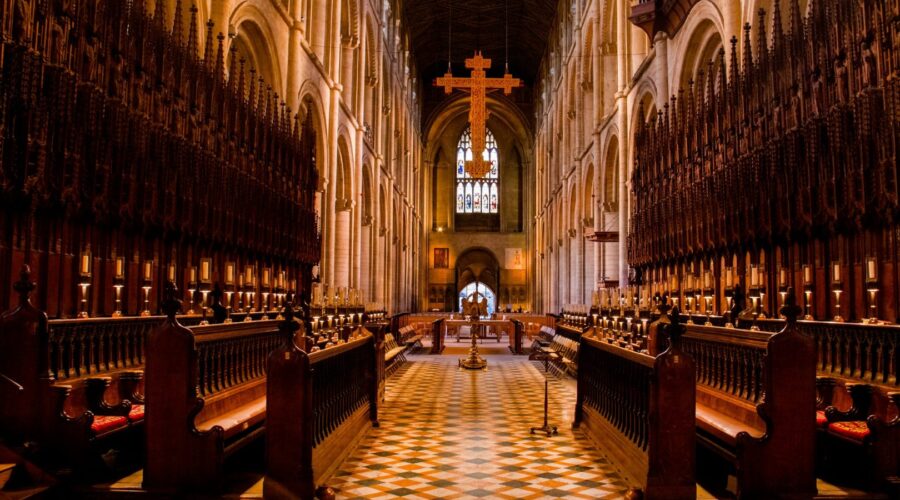
Discover Lutheranism: A Comprehensive Guide to Beliefs, History, and Practices
Introduction: Delving into the Lutheran Faith
Lutheranism, a branch of Christianity founded by Martin Luther in the 16th century, holds a unique place in the Protestant Reformation. Based on the principle of “sola scriptura” (Scripture alone), it emphasizes the authority of the Bible as the sole source of faith and practice. This comprehensive guide will delve into the core beliefs, rich history, and diverse practices of the Lutheran faith.
II. Core Beliefs of Lutheranism
A. Justification by Faith
* Lutherans believe that salvation is not earned through good works or rituals but is freely given by God through faith in Jesus Christ.
* This faith is not a mere intellectual assent but a radical trust in God’s promise of forgiveness and eternal life.B. Sola Scriptura
* The Bible is considered the ultimate authority for faith and practice.
* Lutherans hold that the Word of God is inerrant and infallible, containing all that is necessary for salvation.C. The Two Sacraments
* Baptism: This sacrament initiates believers into the Christian faith, cleansing them from sin and incorporating them into the Body of Christ.
* Holy Communion: Also known as the Lord’s Supper, this sacrament commemorates Christ’s sacrifice and provides spiritual nourishment to believers.D. The Priesthood of All Believers
* All baptized Christians are called to participate in the ministry of the Church.
* This includes the roles of preaching, teaching, and serving within the community.III. History of Lutheranism
A. Martin Luther and the Reformation
* Martin Luther, a German theologian, sparked the Reformation in 1517 with his Ninety-Five Theses.
* Luther challenged the practices and authority of the Catholic Church, leading to his excommunication and the formation of a new Christian movement.B. The Augsburg Confession
* In 1530, Lutheran leaders presented the Augsburg Confession to Emperor Charles V, outlining their key beliefs.
* This confession became a foundational document for Lutheranism, affirming the principles of justification by faith and sola scriptura.C. Lutheranism Spreads Globally
* Lutheranism spread rapidly throughout Europe and beyond, establishing churches and congregations in many countries.
* Today, Lutheranism has over 80 million adherents worldwide.IV. Lutheran Practices and Worship
A. Sunday Worship
* Lutheran worship typically includes a sermon, hymns, prayers, and the administration of the sacraments.
* Preaching is based on the Bible and emphasizes the grace and forgiveness of God in Christ.B. Liturgical Calendar
* Lutherans follow a liturgical calendar that marks significant events in the life of Jesus Christ.
* This includes festivals such as Christmas, Easter, and Pentecost.C. Music and the Arts
* Music plays an important role in Lutheran worship, with a rich tradition of hymns and choral music.
* Many Lutherans also appreciate the use of visual arts, such as stained glass windows and sculptures, to enhance their worship experience.D. Social Outreach and Service
* Lutherans believe in the importance of serving others as a witness to their faith.
* Many churches are involved in social welfare programs, such as food banks, homeless shelters, and support groups.V. Diversity and Denominations within Lutheranism
A. Different Lutheran Churches
* There are various Lutheran denominations with varying organizational structures and emphases.
* Some prominent denominations include the Lutheran Church-Missouri Synod, the Evangelical Lutheran Church in America, and the Lutheran Church-Canada.B. Evangelical and Liberal Traditions
* Lutheran churches generally fall within two broad theological traditions:
* Evangelical: Emphasizes the importance of personal faith and evangelism.
* Liberal: Focuses on social justice, inclusivity, and the role of reason in understanding faith.VI. Lutheran Contributions to Society
A. Education
* Lutherans have a long history of establishing schools and universities, promoting literacy and higher education.
* Many Lutheran institutions continue to provide quality education around the world.B. Culture
* Lutherans have played a significant role in shaping Western culture through their contributions to music, art, literature, and social reform.
* Lutheran musicians, such as Johann Sebastian Bach, are renowned for their masterpieces.C. Social Activism
* Many Lutheran leaders have been involved in social justice movements, such as the civil rights movement and the fight against poverty.
* Lutheran churches continue to advocate for the marginalized and work for a more just and equitable world.Conclusion
Lutheranism is a vibrant and diverse Christian tradition with a rich history, enduring beliefs, and a commitment to service. Its emphasis on justification by faith, sola scriptura, the priesthood of all believers, and the importance of worship and service has shaped the lives of millions of Christians around the world. Whether you are exploring Christianity for the first time or seeking a deeper understanding of Lutheranism, this guide provides a comprehensive overview of this influential branch of the Christian faith.
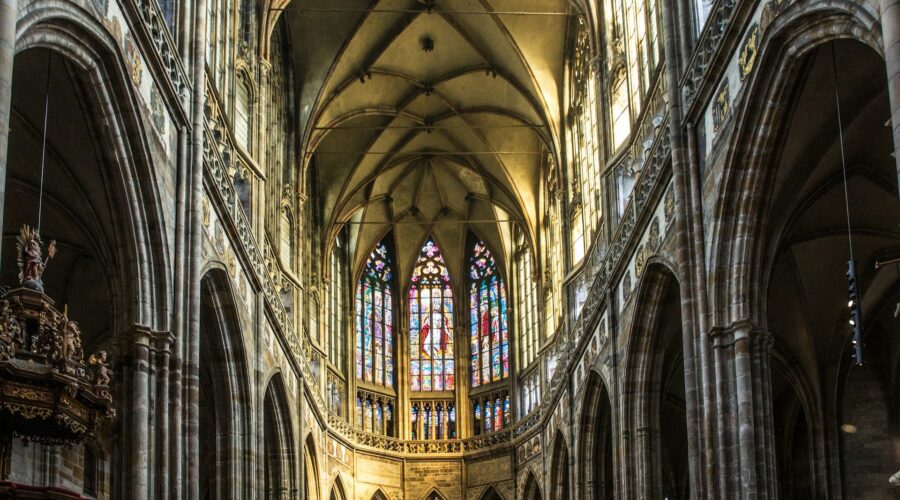
St. Joseph Catholic Church: A Comprehensive Guide
About St. Joseph Catholic Church
St. Joseph Catholic Church is a vibrant and welcoming parish in the heart of [City Name]. As a beloved spiritual home for many, our church is renowned for its unwavering commitment to serving the community and fostering a deep connection with God. With a rich history spanning [Number] years, we continue to embrace the teachings of Jesus Christ and provide guidance and support to all who seek it.
Our mission is to create a welcoming and inclusive environment where individuals can grow in faith, nurture their spirituality, and find a sense of belonging. We strive to provide meaningful worship experiences, transformative educational programs, and impactful outreach initiatives that make a tangible difference in the lives of those we serve.
Mass Schedule and Sacraments
Mass Schedule
Join us for Mass at the following times:
- Sunday: 7:30 AM, 9:30 AM (English), 12:00 PM (Spanish)
- Monday-Friday: 8:00 AM
- Saturday: 5:00 PM (English), 7:00 PM (Spanish)
Sacraments
We are committed to providing the sacraments to all members of our community. Please contact the parish office for more information on receiving the sacraments of:
- Baptism
- Confirmation
- First Communion
- Reconciliation
- Anointing of the Sick
- Marriage
Parish Ministries and Programs
At St. Joseph Catholic Church, we offer a wide range of ministries and programs to cater to the diverse needs of our parishioners. These include:
- Bible Study Groups: Engage in thought-provoking discussions and deepen your understanding of Scripture.
- Youth Ministry: Empowering our young people through faith formation, service projects, and social events.
- Adult Faith Formation: Explore your faith through a variety of classes and workshops designed to strengthen your spiritual journey.
- Choir and Music Ministry: Enhance worship experiences with our talented choir and musicians.
- Outreach Programs: Serving the community through food pantries, homeless shelters, and other charitable initiatives.
Community Involvement
As an integral part of the wider community, St. Joseph Catholic Church is actively engaged in various outreach programs and initiatives. We believe in using our resources and abilities to bring hope, healing, and support to those in need.
Our community involvement includes:
- Food Insecurity Relief: Partnering with local organizations to provide food assistance to families facing hunger.
- Homeless Outreach: Supporting shelters and programs that offer food, shelter, and counseling to individuals experiencing homelessness.
- Social Justice Initiatives: Advocating for justice, equality, and human dignity in our community and beyond.
- Interfaith Dialogue: Engaging in respectful dialogue and collaborations with members of other faith communities.
History of St. Joseph Catholic Church
The roots of St. Joseph Catholic Church can be traced back to [Date], when a small group of faithful Catholics established a mission in [City Name]. Over the years, the parish has witnessed significant growth and development, including the construction of a new church building in [Date].
Throughout its history, St. Joseph Catholic Church has played a vital role in the spiritual and social life of the community. It has been a place of worship, education, and gathering for generations of Catholics. Today, the parish continues to thrive as a vibrant and welcoming center of faith and service.
Contact Us
For more information about St. Joseph Catholic Church, please contact us at:
Address: [Church Address]
Phone: [Phone Number]
Website: [Website Address]
We warmly invite you to join our parish family and experience the love and grace of Jesus Christ at St. Joseph Catholic Church.
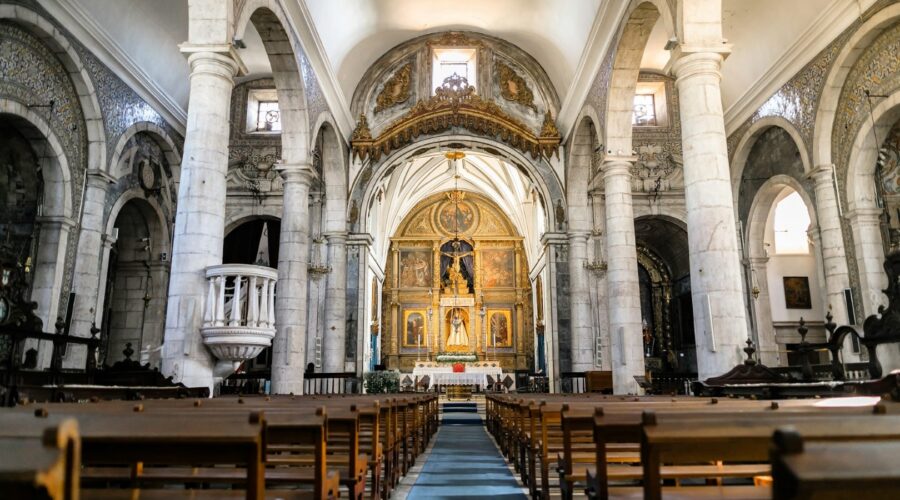
Awana: A Comprehensive Guide for Parents
Introduction
Awana is a global nonprofit children’s and youth ministry organization dedicated to the spiritual development of children through the power of Scripture. With over 1 million members in over 14,000 churches worldwide, Awana has been impacting lives for over 70 years.
What is Awana?
Awana is a weekly club program that meets during the school year. It is divided into four age-specific clubs:
- Cubbies (preschool)
- Sparks (K-2nd grade)
- Truth & Training (3rd-6th grade)
- Trek (7th-12th grade)
Each club focuses on a specific age group and has its curriculum, activities, and awards.
The Awana Philosophy
Awana’s philosophy is based on three core principles:
- Biblical Truth: Awana believes that the Bible is the authoritative Word of God and that it should be the foundation for all teaching and activities.
- Spiritual Transformation: Awana seeks to help children develop a personal relationship with Jesus Christ and grow in their spiritual lives.
- Outreach: Awana believes that every child can share the Gospel with others and that Awana can provide a platform for them to do so.
Benefits of Awana
There are many benefits to joining Awana, including:
- Spiritual Development: Awana provides a fun and engaging environment for children to learn about the Bible and grow in their faith.
- Character Building: Awana teaches children important life skills such as responsibility, self-discipline, and teamwork.
- Socialization: Awana provides a safe and supportive environment for children to make friends and build relationships.
- Leadership Development: Awana offers opportunities for children to develop leadership skills through various roles and responsibilities.
Finding an Awana Near You
To find an Awana near you, you can visit the Awana website. The website allows you to search for clubs by zip code, state, or country.
How to Get Involved
Once you have found an Awana near you, the next step is to get involved. Here are a few tips:
- Visit the club: Attend a club meeting to see what it is like and meet the leaders.
- Talk to your child: Ask your child if they are interested in joining Awana.
- Register your child: Once you have decided to join, you will need to register your child with the club.
Conclusion
Awana is a great way for children to grow in their faith, develop their character, and make friends. If you are looking for a children’s ministry program for your child, I encourage you to check out Awana.
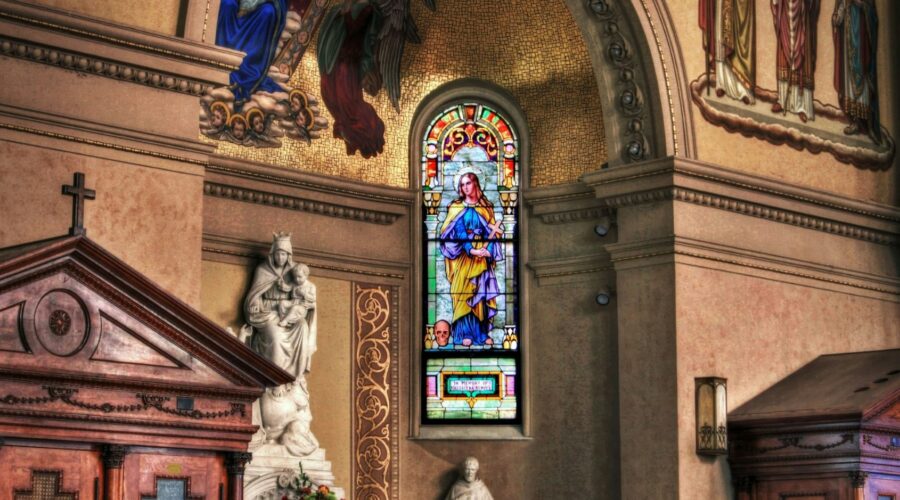
Discover the Heart of Faith: A Comprehensive Guide to 1st Baptist Church
Embark on a journey of spiritual exploration and Christian community at the esteemed 1st Baptist Church. This comprehensive guide delves into the rich history, vibrant present, and transformative impact of this venerable institution.
Historical Roots: A Legacy of Faith
Founded in [Year], 1st Baptist Church has served as a beacon of Christianity for over [Number] years. Its roots trace back to the heart of the Baptist movement, embracing the core principles of individual faith, congregational autonomy, and the authority of Scripture.
Over the centuries, the church has witnessed countless moments of grace, revival, and community growth. Its walls have resonated with the prayers, hymns, and testimonies of generations of believers.
Notable Pastors and Leaders
- [Name of Pastor 1] – Led the church through a period of significant growth and evangelism.
- [Name of Pastor 2] – Known for his compassionate ministry and community outreach.
- [Name of Pastor 3] – Instrumental in establishing the church’s renowned music program.
Contemporary Presence: A Thriving Community
Today, 1st Baptist Church stands as a vibrant and inclusive community of believers. Its spacious sanctuary, modern facilities, and dedicated staff provide a welcoming environment for all who seek spiritual fulfillment.
Weekly Worship Services
The church holds regular worship services on [Days], offering a blend of traditional and contemporary worship styles. Services feature inspiring sermons, uplifting music, and opportunities for prayer and communion.
Discipleship and Growth Opportunities
1st Baptist Church offers a wide range of discipleship programs and small groups to foster spiritual growth and community connection. These programs cater to individuals of all ages and life stages.
- Sunday School classes for all ages
- Bible studies and prayer groups
- Retreats and conferences
Community Involvement and Outreach
The church is deeply rooted in its community. It actively participates in outreach programs, such as food pantries, homeless shelters, and youth mentoring.
Members are encouraged to volunteer their time and skills to make a positive impact in the surrounding area.
Transformative Impact: Lives Touched by Faith
Throughout its history, 1st Baptist Church has been instrumental in transforming countless lives. Its members have been inspired to live lives of faith, compassion, and service.
Testimonies of Transformation
“My journey of faith began at 1st Baptist Church. The community and teachings I found there ignited a spark within me that has guided my life ever since.” – [Member Testimonial]
“Through the discipleship programs at the church, I discovered my true calling and the strength to overcome personal challenges.” – [Member Testimonial]
Mission and Vision
1st Baptist Church’s mission is to proclaim the Gospel of Jesus Christ, equip believers for spiritual growth, and make a positive impact on the community and world.
Its vision is to be a welcoming and transformative church that inspires and empowers individuals to live lives of faith, purpose, and compassion.
Conclusion: A Spiritual Haven
1st Baptist Church is more than just a building or an institution; it is a living, breathing community of believers who are on a shared journey of faith. Its rich history, vibrant present, and transformative impact make it a beacon of hope and inspiration.
Whether you are seeking a spiritual home, looking to deepen your faith, or simply desire to make a difference in the world, 1st Baptist Church invites you to join its community and experience the transformative power of faith.
Visit the 1st Baptist Church website for more information, service times, and contact details.